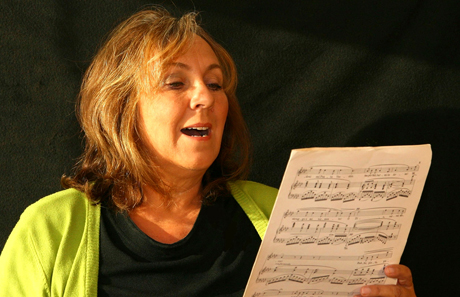
Register by October 17 to Secure Your Spot!
| Registration Type | Member Price |
|---|---|
| Early Bird Registration (Sept. 11-Oct.3) | $750 |
| General Registration (Oct. 4-Oct.17) | $850 |
| Registration Type | Member Price |
|---|---|
| Early Bird Registration (Sept. 11-Oct.3) | $750 |
| General Registration (Oct. 4-Oct.17) | $850 |
| Registration Type | Member Price | Non-Member Price |
|---|---|---|
| Early Bird Registration (Sept. 11-Oct. 3) | $750 | $850 |
| General Registration (Oct. 4-Oct.17) | $850 | $950 |
Not a member? We'd love to have you join us for this event and become part of the Chorus America community! Visit our membership page to learn more, and feel free to contact us with any questions at [email protected].
| Registration Type | Non-Member Price |
|---|---|
| Early Bird Registration (Sept. 11-Oct. 3) | $850 |
| General Registration (Oct. 4-Oct.17) | $950 |
Think you should be logged in to a member account? Make sure the email address you used to login is the same as what appears on your membership information. Have questions? Email us at [email protected].
| Registration Type | Price |
|---|---|
| Individual Session | $30 each |
| All Four (4) Sessions | $110 |
*Replays with captioning will remain available for registrants to watch until November 1, 11:59pm EDT.
Member Professional Development Days are specially designed for Chorus America members. If you're not currently a member, we'd love to welcome you to this event, and into the Chorus America community! Visit our membership page to learn more about becoming a member of Chorus America, and please don't hesitate to reach out to us with any questions at [email protected].
| Registration Type | Price |
|---|---|
| Individual Session | $30 each |
| All Four (4) Sessions | $110 |
*Replays with captioning will remain available for registrants to watch until November 1, 11:59pm EDT.
| Registration Type | Price |
|---|---|
| Individual Session | $30 each |
| All Four (4) Sessions | $110 |
*Replays with captioning will remain available for registrants to watch until November 1, 11:59pm EDT.
Member Professional Development Days are specially designed for Chorus America members. If you're not currently a member, we'd love to welcome you to this event, and into the Chorus America community! Visit our membership page to learn more about becoming a member of Chorus America, and please don't hesitate to reach out to us with any questions at [email protected].

You've decided to make the commitment to improving your singing abilities. But how do you find the right instructor to help you on your way?
To quote a familiar African proverb: If you can walk, you can dance. If you can talk, you can sing.
I am lucky enough to live in Washington, DC, where singing opportunities abound. As a professional singer, I am also fortunate enough to have musical colleagues and friends whose passion and artistry lent inspiration to the creation of Singer Source, a website that links classically trained vocalists with related services located in the DC area.
Presumably you are reading this article because you sing and wish to improve. Bravo! Healthy singing coexists with a healthy mind and body so given the best instruction, you may find more than your voice improving!
First, ask yourself these questions:
Next, collect names. Trained voice teachers exist in reputable music programs within your local schools, colleges, and universities. Large choirs often maintain a recommended list of teachers. Talk to friends who study voice and local musicians whose work you admire. I suggest the following resources:
Once you've gone through these preliminary steps, it's time to start contacting teachers. E-mail inquiry is fine. However, I recommend a brief phone call or, if possible, a personal meeting before committing to a lesson. Personal contact affords you the opportunity to test your comfort level with the teacher. Effective vocal study is both intense and productive, so, like working with a personal trainer or therapist, a good dose of trust and positive chemistry is essential. While the teacher need not match your gender or vocal part, your teacher should be receptive to your goals. I also recommend making an audio recording of the lesson to enable another perspective of the instruction and experience.
Ensure that your teacher has performance experience in a variety of musical styles and groups. You will want him or her to understand your performance medium enough to effectively help you.
Don't overlook a teacher holding a music education degree (with vocal concentration) in lieu of a degree in vocal pedagogy. Music educators have studied vocal production, music history, advanced music theory, conducting, and educational philosophies within a curriculum designed to create effective vocal educators.
Singing is for life! Congratulations on taking the first step to protect your voice—a lifelong investment.